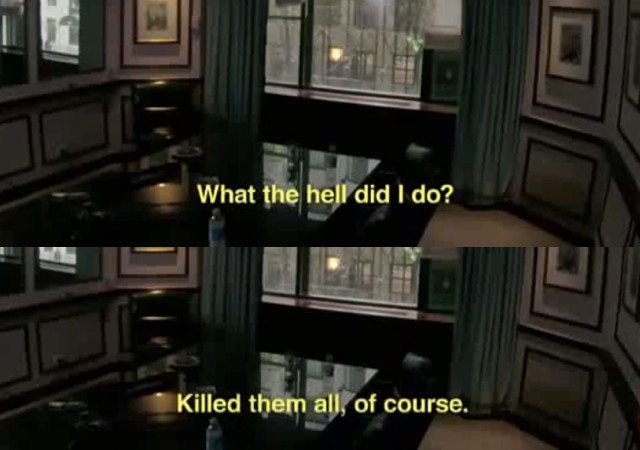Watch Robert Durst "Confess" That He "Killed Them All"
March 16, 2015, 8:34 a.m.
'There it is. You’re caught. What a disaster.'

Last night, on the final episode of HBO's documentary series, The Jinx, real estate heir Robert Durst seemed to confess to killing three people. Without removing his wireless microphone used in interviews, he goes into a bathroom, muttering, "There it is. You’re caught. What a disaster," and "What the hell did I do? Killed them all, of course."
Durst, 71, had been suspected of killing his wife Kathleen Durst when she disappeared from their Westchester County country home in 1982. He was later acquitted of shooting and dismembering a Texas neighbor, Morris Black, in 2001. He had also been the prime suspect in the LAPD's investigation of writer Susan Berman's death, who was shot in the head in her Lauren Canyon, California home—there was never enough evidence to link him to the killing. However, after The Jinx started airing, Los Angeles authorities reopened the case of Berman's death last week.
Durst, known as the "eccentric and estranged son of one of New York’s most prominent real estate dynasties," contacted director Andrew Jarecki, whose 2010 film, All Good Things, was inspired by Durst's life and Kathleen's disappearance. Durst wanted to tell his side of the story to Jarecki and The Jinx co-producer Marc Smerling.
Throughout the documentary, he said he didn't believe prosecutors would try to go after him again, "It’s so long ago. Some D.A. would have to commence a budget-busting investigation. I don’t see that happening." Now, the former Westchester County prosecutor who investigated Kathleen Durst's disappearance tells the NY Times, "These two producers did what law enforcement in three states could not do in 30 years. Kudos to them. They were meticulous. They were focused. They were clear."
Apparently the segment where Durst "confesses" was filmed three years ago, but was only discovered in the past year. According to the Times:
Mr. Jarecki, who was also the show’s director, and Mr. Smerling struggled with whether to bring the letter to law enforcement authorities. If they did so too soon, their lawyers told them, they could be considered law enforcement agents in the event of a prosecution, possibly jeopardizing the material’s admissibility in court, Mr. Jarecki said.
They also wanted to preserve a journalistic privilege not to disclose sources or testify in court. Still, Mr. Smerling said in an interview, “We had a moral obligation and an obligation to the families of the dead to see that justice was done.” They began speaking to Los Angeles investigators in early 2013.
It's unclear whether the audiotape, which was made in a bathroom where Durst would have expected privacy, can be used in court. The former head of investigation at the Manhattan DA's office, Daniel Castleman, told the Times, "That’s pretty damning stuff. The question is: Is it admissible in court?"
Durst was arrested in New Orleans on extradition charges from the LAPD. (He may have been trying to flee to Cuba.) His brother, Douglas Durst, CEO of the Durst Organization, which owns trophy buildings like 4 Times Square and 1 Bryant Park, issued a statement, "We are relieved and also grateful to everyone who assisted in the arrest of Robert Durst. We hope he will finally be held accountable for all he has done."
Five years ago, the Times had a feature about All Good Things and spoke to Durst.
In his recent conversations about the movie, Mr. Durst restated his position that he does not know what happened to his wife. Speaking more broadly, though, he said, “Whatever happened with Kathie was a big chunk my fault.”
He claimed complete ignorance about what happened to Ms. Berman. “I’m ready to go before God naked and say I don’t know nothing,” he said.
Mr. Jarecki said he has had no contact with Mr. Durst though he did try to reach him at one point without success. Mr. Durst, not surprisingly, remained keenly interested in the movie, according to two associates, who said he would show up quietly when shooting was done at outdoor locations in New York in 2008. He saw the film, he said, at a private screening arranged by Magnolia Pictures.
Mr. Durst is also vigilant about monitoring what is written about him. In a conversation this month he took offense that a 2006 article in The New York Times had described him as having carved up Mr. Black’s body until he was “swimming in blood.”
“I didn’t carve up the guy,” he said. “I dismembered a corpse.”